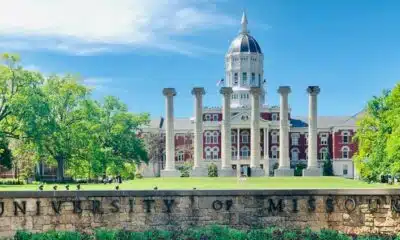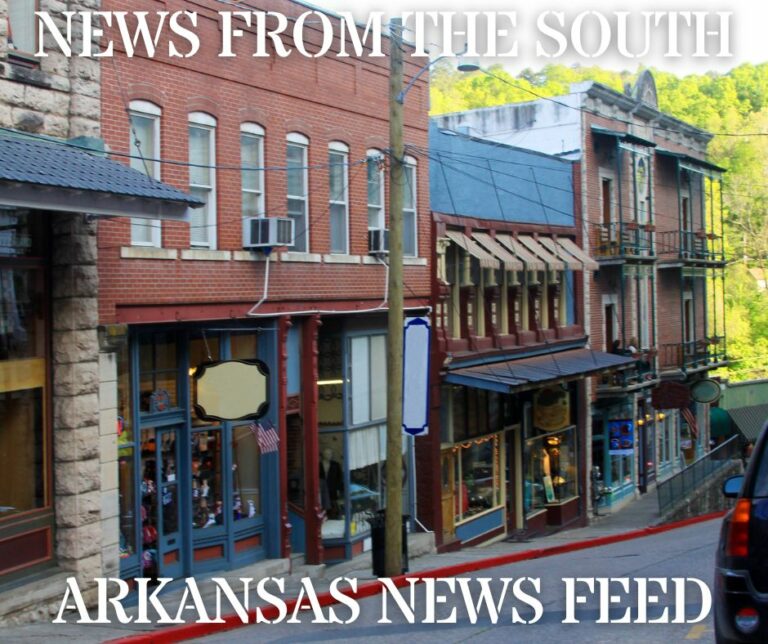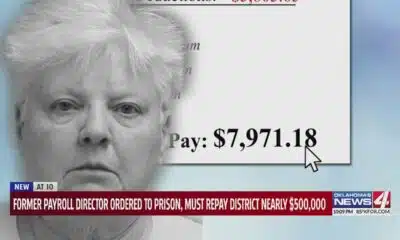News from the South - North Carolina News Feed
‘Beyond grateful:’ Unprecedented donations pour in from every state following Helene • Asheville Watchdog
Money has been pouring into western North Carolina in unprecedented amounts since Tropical Storm Helene from individual donors, corporations and foundations throughout the U.S.
At least $205 million has been raised or made available through disaster relief funds, benefit concerts and fundraisers, Asheville Watchdog found. Nonprofits in the region have raised millions more to provide food, housing and grants to storm victims and businesses.
Dogwood Health Trust, created with proceeds from the sale of Mission Health in 2019, has contributed the most. Dogwood announced a third round of Helene relief funding Thursday, bringing its commitment to $70 million.
Individual and corporate donations have come in through traditional means, such as contributions to foundations and agencies assisting in the recovery, but also through direct appeals to the public on crowdfunding platforms. GoFundMe campaigns started by individuals, businesses and artists in North Carolina have raised more than $40 million, nearly half of that going to fundraisers in Buncombe County, a company spokesman said.
“The outpouring from across North Carolina, across the country, has been overwhelming and also just unprecedented in terms of past disasters,” said Jennifer Tolle Whiteside, president and CEO of the North Carolina Community Foundation in Raleigh.
The foundation’s Disaster Relief Fund for long-term recovery has raised $12 million, already doubling the amount collected after the last hurricane, Florence, in 2018, she said.
“We are beyond grateful for the incredible outpouring of support that we’ve received,” said Mary Nesbitt, chief development officer of MANNA FoodBank, which lost two warehouses and all contents in Helene. “In the midst of a catastrophe of this magnitude, it has been so inspiring to see the goodness of humanity and all the ways that people have reached out to try to help.”
But even as some nonprofits set fundraising records, many fear it won’t be enough. They worry that disaster donations could jeopardize end-of-the-year giving that so many rely on for annual operations and that the generosity could dry up as attention on the storm fades.
“There’s this real reality of potential donor fatigue,” said Jessie Figueroa, resource development director for Homeward Bound of WNC. “Even the donors that we normally can rely on to contribute towards that end of year campaign, did they already give elsewhere in the community and kind of exhaust their philanthropy budget?”
Donations from every state
Charitable giving typically ramps up after a natural disaster, particularly in the early days. Helene tugged on the purse strings of philanthropists and corporations far and wide with its devastation vast and unexpected in a part of the country assumed to be safe from extreme weather.

“I think that people thinking of Asheville and western North Carolina as kind of a climate-safe area were really motivated to give,” said Lindsay Hearn, spokeswoman for the Community Foundation of Western North Carolina, which has received more than $27 million for its disaster response fund and began providing grants to frontline nonprofits 10 days after the storm.
The foundation has received donations “from every state in the country,” Hearn said.
Donors included two siblings in Charlotte, Elle and Thomas, who set up a lemonade stand and through contributions from neighbors sent $850 to the foundation.
Because of the region’s tourism draw, people outside of North Carolina have felt a connection and desire to help.
“So many of the donors I talked to,” Nesbitt said, “say things like, ‘We would come every year when I was growing up and go to the Biltmore House. We used to go spend time in the summer at Chimney Rock and Lake Lure.’”
Determining a total for how much has been raised is nearly impossible. Benefit concerts and fundraisers are being held across the country, and no single entity is overseeing storm relief philanthropy.

Many of the region’s most prominent nonprofits are not sharing their fundraising totals and likely will not until next year. Donations can be traced through tax returns, but those will not be filed for months.
“It is almost impossible for anyone to be able to figure out how much money has gone into the region specifically for this purpose, and that we may never know exactly,” said Sarah Mann Willcox, executive director of the North Carolina Network of Grantmakers. Tax returns are “so late compared to when we’re trying to understand the impact on the ground.”
Responding and rebuilding
A large portion of the aid coming into the region is going directly to nonprofits. Several are raising money not just for a spike in post-storm demand but also because of significant damage to their buildings and operations.
MANNA’s two warehouses flooded, destroying everything inside from food to computers, pallets and forklifts, said Nesbitt. “We lost everything,” she said.
Losses are projected to be more than $28 million. MANNA had the maximum amount of flood insurance, Nesbitt said, but it will cover just $1.5 million to $2 million.
The food bank, which supplies 220 pantries across western North Carolina, quickly pivoted, operating out of a warehouse in Mills River in what Nesbitt called “a miracle in the nightmare.”
MANNA had been searching for a new site for years. Its board voted to buy the Mills River property just two days before the storm and arranged to lease the space until the deal was finalized.
Food and donations began arriving almost immediately.
“The word had gotten out from across the country,” Nesbitt said. “We had loads of food, water, you name it, toiletry items, cleaning supplies. We had them coming in … as soon as we could open the doors in this warehouse in Mills River, and so then we were able to start distributing food.”
Nesbitt would not say how much MANNA has raised.
“It would not be appropriate in this moment to share until we have actual vetted numbers” after the end of the quarter, she said.
| Here’s what’s been raised so far
Storm-related aid in western North Carolina is benefiting nonprofits, small businesses, artists and hospitality workers. Dogwood Health Trust: $70 million GoFundMe: $40 million Community Foundation of Western North Carolina’s Disaster Relief Fund: $27.6 million “Concert for Carolina”: $24.5 million. The Oct. 26 concert in Charlotte, organized by North Carolina natives Luke Combs and Eric Church, benefited nonprofits including MANNA and Asheville-based Eblen Charities The North Carolina Disaster Relief Fund: $16 million The North Carolina Community Foundation’s Disaster Relief Fund: $12 million “Trump-authorized” GoFundMe: $8 million U.S. Chamber of Commerce Foundation’s Hurricane Recovery program: $5 million Soulshine: $4.5 million. The Nov. 24 benefit concert at Madison Square Garden featuring the Warren Haynes Band, Dave Matthews Band and others raised money for several local charities including ArtsAVL, Manna, BeLoved Asheville and Asheville Area Habitat for Humanity. Lowe’s and the Local Initiatives Support Corporation: $2 million Craft Emergency Relief Fund (CERF+): $1.5 million Asheville-Buncombe Rebuilding Together: $1.3 million Center for Craft: $1.2 million Explore Asheville’s Always Asheville Fund: $1.1 million ArtsAVL emergency relief program: nearly $1 million North Carolina Arts Foundation: $710,000 River Arts District Artists Foundation: $700,000 North Carolina Restaurant & Lodging Association Foundation’s NC Hospitality Workers Relief Fund: $610,000 |
MANNA’s swift transition to a new headquarters also allowed the nonprofit to provide office space for Asheville Area Habitat for Humanity and temporarily hire some of its employees who otherwise would have been displaced, Nesbitt said.
Habitat’s Asheville ReStore and administrative offices near Biltmore Village sustained significant damage in the storm. Habitat is raising money to rebuild and, in the words of its web site, “regain our operational footing.”
Habitat CEO Andy Barnett could not be reached for comment despite several messages.
Brother Wolf Animal Rescue suffered about $1 million in losses when its shelter complex, mobile medical clinic and vehicles were submerged in 15 feet of water, said Leah Craig Chumbley, executive director. All animals had been evacuated, but the shelter had to relocate to temporary quarters and is raising money to buy land and rebuild.
Chumbley called the response amazing. “The whole country, and really the world, was looking at what was happening in western North Carolina, and because of that, we received support from all over the country,” she said.
Brother Wolf is nearing its $3 million fund-raising goal. A group of donors jump-started the campaign, providing $1.5 million in matching funds.

“That’s huge for us,” Chumbley said. “The largest match, to my knowledge, that Brother Wolf has ever run is $100,000.”
Donations also have poured into agencies providing housing and homelessness services.
BeLoved Asheville, a nonprofit that provides food, housing and health care to the underprivileged, has received and distributed new recreational vehicles, tiny homes, toys, bicycles and more, according to social media posts. Attempts to reach the organization’s leaders were unsuccessful.
A recorded phone message on BeLoved’s line said it was unable to respond to messages “due to the tremendous outpouring of love and support … We are receiving hundreds of calls a day.”
Homeward Bound, a nonprofit that works to prevent and end homelessness, saw about a 225 percent increase in donations in September and October over the same period in 2023, said Figueroa, the resource development director.
“While we are so grateful for this influx of support in such a short period of time, we remain uncertain how this will impact our normal fundraising patterns to meet the annual need,” Figueroa wrote in an email to The Watchdog. “We also anticipate the community will now have a higher need for more housing programs for those at-risk of becoming homeless and those displaced from their housing as a result of the storm.”
Long-term need
Helene may have generated an unprecedented charitable response, but it also generated an unprecedented need – for housing, food and jobs.
“Our greatest need at MANNA FoodBank and so many other organizations is to keep this crisis in the public eye for the long haul because, as you know, the holidays pass, other crises happen, the mass media may need to turn their attention in other directions,” Nesbitt said. ”I get calls from donors, and they’re wonderful people, but they think we’re now moving out of the crisis.”
MANNA had already been serving record numbers before the storm because of “the ever widening gap between cost of living and income in western North Carolina,” Nesbitt said. “Now, with the loss of so many livelihoods, people’s properties … we have so many more people turning to us. … so many for the first time in their lives.
“This is going to be such a long road to recovery,” Nesbitt said. “We anticipate that elevated need to continue for years to come.”
For the many artists whose work and workplaces were damaged or destroyed, some grants have helped with immediate needs. But “they also need places to present and produce,” said Stephanie Moore, executive director of the nonprofit Center for Craft.
“The cultural organizations in Asheville have received very little emergency relief,” she said. “Many grants were designated for for-profit businesses only and completely neglected the cultural sector, so, if stages and community art centers are destroyed, where does an artist connect to an audience? And if tourism is down or slow to return and galleries close, will there be opportunities to show/sell/produce?”
Willcox, executive director of the North Carolina Network of Grantmakers, representing foundations, corporate giving offices and donor-advised funds, said, “I want to sing the song about what an amazing response philanthropy has given. … I’m also very aware that the last thing we want to imply is that they are getting enough money because they’re not.”
Willcox said that “philanthropy doesn’t have the kind of dollars to cover the gaps that are happening.”
“You could liquidate every foundation in North Carolina,” she said, “and not get close to what western North Carolina will need.”
Asheville Watchdog is a nonprofit news team producing stories that matter to Asheville and Buncombe County. Sally Kestin is a Pulitzer Prize-winning investigative reporter. Email skestin@avlwatchdog.org. The Watchdog’s reporting is made possible by donations from the community. To show your support for this vital public service go to avlwatchdog.org/support-our-publication/.
Related
The post ‘Beyond grateful:’ Unprecedented donations pour in from every state following Helene • Asheville Watchdog appeared first on avlwatchdog.org
News from the South - North Carolina News Feed
In Depth with Dan: Answering viewer questions about flesh-eating bacteria, digital licenses
SUMMARY: In this Monday mailbag, Dan addresses viewer questions on three topics. First, North Carolina’s Vibrio bacteria risk in summer coastal waters: cooked shellfish is safe, but raw consumption is risky due to bacteria concentrating in oysters. Second, digital driver’s licenses in North Carolina face delays; although legalized in 2023, full rollout may not occur until 2026, with other states also lagging behind. Lastly, Dan explains flood-damaged vehicles after recent storms: flooded cars must be branded as such, but scams occur. He shares tips to spot flood damage when buying used cars, emphasizing caution and thorough inspection.
WRAL anchor/reporter Dan Haggerty answered viewer questions about a flesh-eating bacteria in North Carolina and the legalization of digital driver’s licenses.
News from the South - North Carolina News Feed
The latest update on Tropical Storm Erin
SUMMARY: Tropical Storm Erin is forecast to become a Category 1 hurricane by Thursday and remain well out to sea through Saturday, near the Lesser Antilles northeast of Puerto Rico. Models show it moving west, then curving north toward Bermuda or Florida, but uncertainty remains high beyond next week. The American and European models suggest it could pass between Bermuda and Hatteras, causing higher surf midweek. Due to large forecast errors, the storm’s exact path is unclear, ranging from north of New York to the Florida panhandle. Residents should prepare hurricane kits and stay updated, with clearer guidance expected by Thursday or Friday.
Will Erin cause problems for the East Coast? Here’s the latest on Monday evening.
https://abc11.com/post/tracking-tropics-tropical-storm-erin-forms-eastern-tropical-atlantic-cabo-verde-islands/17499988/
Download: https://abc11.com/apps/
Like us on Facebook: https://www.facebook.com/ABC11/
Instagram: https://www.instagram.com/abc11_wtvd/
Threads: https://www.threads.net/@abc11_wtvd
TIKTOK: https://www.tiktok.com/@abc11_eyewitnessnews
X: https://x.com/ABC11_WTVD
News from the South - North Carolina News Feed
Body of missing NC teen found in Florida, family says
SUMMARY: The body of missing North Carolina teen Gio Gio was found in Bradenton, Florida, confirmed by his family. Originally, Gio Gio was supposed to be picked up by relatives after meeting cousins in Florida, but he disappeared after texting his mother for help. His family’s private investigators, not the police, discovered his body near I-75 after police had initially searched the area. Gio Gio’s mother expressed her heartbreak on Facebook, calling it every parent’s worst nightmare. The investigation continues, focusing on the timeline after Gio Gio entered the car with his cousins. An autopsy is pending, with no immediate signs of foul play.
The body of Giovanni Pelletier was found in a retention pond, authorities said, and his mom is living “every parent’s worst nightmare.”
https://abc11.com/post/giovanni-pelletier-body-missing-18-year-old-north-carolina-found-pond-where-last-seen-family-says/17483056/
Download: https://abc11.com/apps/
Like us on Facebook: https://www.facebook.com/ABC11/
Instagram: https://www.instagram.com/abc11_wtvd/
Threads: https://www.threads.net/@abc11_wtvd
TIKTOK: https://www.tiktok.com/@abc11_eyewitnessnews
X: https://x.com/ABC11_WTVD
-
News from the South - Oklahoma News Feed3 days ago
Former payroll director ordered to prison, must repay district nearly $500,000
-
News from the South - North Carolina News Feed6 days ago
Two people unaccounted for in Spring Lake after flash flooding
-
News from the South - Tennessee News Feed5 days ago
Trump’s new tariffs take effect. Here’s how Tennesseans could be impacted
-
News from the South - Texas News Feed4 days ago
Jim Lovell, Apollo 13 moon mission leader, dies at 97
-
News from the South - Oklahoma News Feed6 days ago
Tulsa, OKC Resort to Hostile Architecture to Deter Homeless Encampments
-
News from the South - Missouri News Feed5 days ago
Man accused of running over Kansas City teacher with car before shooting, killing her
-
News from the South - Arkansas News Feed7 days ago
Why congressional redistricting is blowing up across the US this summer
-
News from the South - Arkansas News Feed5 days ago
Arkansas courts director elected to national board of judicial administrators













































